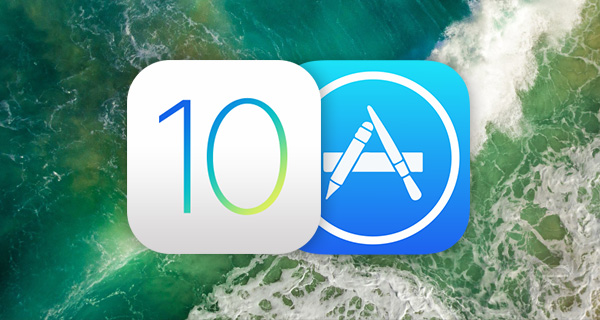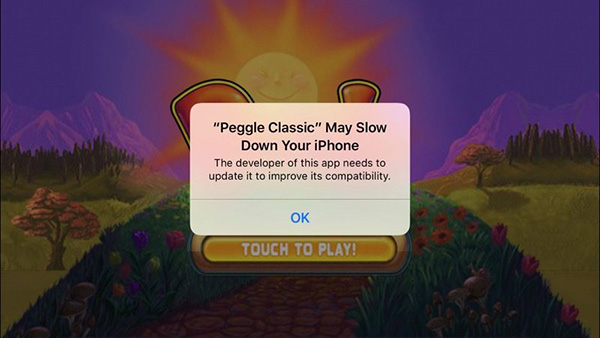With iOS 10 betas, Apple added a “[App] May Slow Down Your iPhone” alert that appeared throughout the beta process when an app was run that did not comply with Apple’s 64-bit app policy. If a user launched a 32-bit app, the alert would appear to warn them that the app was not optimized for iOS 10 and its usage may affect overall system performance.
When iOS 10 shipped to the public last month, that warning message was removed and 32-bit apps were given a reprieve from the public naming and shaming that had gone on throughout the beta period. Now, though, with iOS 10.1 in its own beta-testing phase, the warnings are back – and they’re now even more dire than last time.

Apparently keen to force the hand of developers who have not updated their apps to support 64-bit architecture, Apple’s new iOS 10.1 alert warns anyone running a 32-bit app that it “may slow down your iPhone.” The alert then also goes on to say that “the developer of this app needs to update it to improve its compatibility.”
While there are few show-stopping reasons that would cause the average user to care too much, this warning alert should give them an indication as to the current state of any apps that are causing it to be displayed.
Apple began to ask developers to update for 64-bit compatibility back in 2013, and now that we are three years down the road, they really should have had a chance to get the work done. We’d suggest that if you’re running an app that hasn’t been updated yet, there’s a good chance it probably isn’t going to be.
As for the warning message itself, we expect to see it mothballed before the public release of iOS 10.1. Who knows, it may make another appearance in time for the next round of beta releases.

(Image via: Mac Rumors)
You might also like to check out:
- Jailbreak iOS 10 / 10.0.2 / 10.0.1 For iPhone, iPad, iPod touch [Latest Status Update]
- Download iOS 10, 10.1, 10.0.2 Links & Install On iPhone 7, 6s, 6, Plus, SE, 5s, 5c, 5, iPad, iPod [Tutorial]
- The Best Pokemon Go Cheats, Tweaks, Tips [Guide]
- Pokemon Go++ Hack 1.9.0 / 0.39.0 Available For iOS And Android
- How To Fix Common iOS 10 Problems And Bugs
You can follow us on Twitter, add us to your circle on Google+ or like our Facebook page to keep yourself updated on all the latest from Microsoft, Google, Apple and the web.

